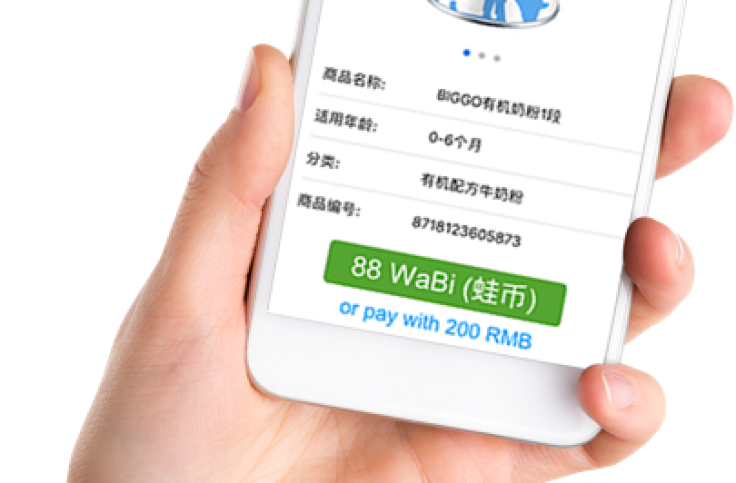What Is WABI? Meet The Cryptocurrency That Aims To Save Lives

This column is part of a weekly series from cryptocurrency expert George Tung. To read more of his work, head here.
Cryptocurrency and Blockchain technology is in its infancy and, in this way, is comparable to the internet of the ’90s: Very few companies have a working product, and those that do aren’t always very good. However, every so often, you come across a company that has its ducks in a row — one that has a great team, a great idea, and most importantly, a product that works.
In Walimai’s case, they have a product called WaBi (WABI) that aims to save lives.
China and Supply Chain
It’s no secret that many of the world’s products are produced in China. China is a global powerhouse in manufacturing and exports anything from tools to clothes and food. However, when manufacturers are pushed to pinch every penny for profits, quality control can fall by the wayside.
One of the worst cases of food tampering came in 2008 and involved infant formula. Infant formula sold in China contained high levels of melamine that affected more than 300,000 victims. Six babies died from kidney stones, and an estimated 54,000 babies were hospitalized for serious health issues before the incident became known to the public.
The World Health Organization referred to the incident as one of the largest food safety events in recent years, and 11 countries stopped all imports of Chinese dairy products. The situation set China back for years.
WaBi’s RFID Tamper-Proof Labels
The tampered infant formula is what drove Walimai to develop the cryptocurrency WaBi and its RFID tamper-proof labels. WaBi’s labels are specifically designed for food safety but can also help improve efficiencies within the supply chain.
The propriety label that attaches over canned baby foods and alcohol ensures that the products have never been opened and/or tampered with. The band is designed so that it can’t be removed without being broken. Every band contains a special RFID chip and barcode that can be scanned with the WaBi mobile app. The mobile app will contain vital information about where the product was filled, where it has gone and, more importantly, if it was ever tampered with.
The mobile app also works in conjunction with the WaBi token. The WaBi token is used to pay for products directly through the app and grants other benefits such as discounts, improved delivery rates and loyalty points.
WaBi’s Price Potential
WaBi is a rarity within the cryptocurrency space: Not only does it have a great idea that solves a real issue, it also has a working product that is already being deployed and used. WABI’s tamper-proof labels are already used on baby formulas sold on JD.com, which is China’s second largest retailer behind Alibaba. And since WaBi has Alibaba’s senior director of business development on as an advisor, you know Alibaba is also taking notice of WABI’s potential.
The overall market cap for WaBi is around $79 million and pales in comparison to two other Chinese-based companies also within the supply chain space. VeChain is around $2.5 billion, and Walton is around $650 million. Although both companies are in the supply chain space, neither one has developed the safety label of WaBi that can be adapted to pretty much anything that opens.
Due to the recent downturn in the overall cryptocurrency market, WaBi tokens are hovering around $1.74 each at the time of this writing. Given that this price fell from WaBi’s high of over $5.00 the first week of January, that means that WaBi is an absolute steal at its current price.
George Tung is a die-hard Bitcoin and cryptocurrency evangelist, mentor and day trader. He runs CryptosRUs.com and a channel on YouTube dedicated to educating people about cryptocurrency.
This article reflects the opinions of the author and is not intended to be financial counsel.
© Copyright IBTimes 2024. All rights reserved.











